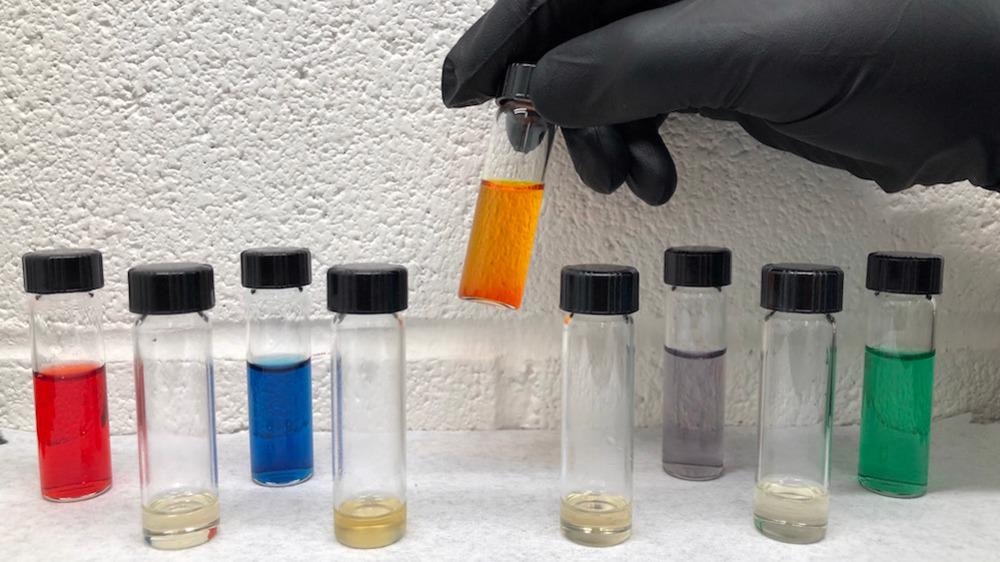Feb 12 2021
Researchers predict that two-thirds of the global population could be affected by freshwater shortage by 2025. To address this problem, scientists from the University of Notre Dame have found that a new solvent—an ionic liquid—enhances a budding desalination technology: directional solvent extraction.
 Solvents. Image Credit: University of Notre Dame.
Solvents. Image Credit: University of Notre Dame.
Directional solvent extraction involves using a solvent to separate freshwater from a saline source with the help of low temperature thermal energy. This implies that the extraction method could use waste heat, or heat generated as a byproduct of other work, and solar heat.
The issue with the current directional solvent extraction technique is that the solvents previously used have very low efficiency and the amount of freshwater being extracted is limited. The new ionic liquid we discovered is shown to be 10 times more efficient than other solvents used for the technique.
Tengfei Luo, Study Corresponding Author and Professor, Department of Aerospace and Mechanical Engineering, University of Notre Dame
Notre Dame researchers have reported in a study published in the Nature Communications journal the discovery that directional solvent extraction desalination with the new ionic liquid uses energy similar to reverse osmosis and considerably less energy compared to thermal desalination, both of which are considered as chief desalination techniques.
In contrast to the other techniques, the advantage of employing directional solvent extraction is that it does not need a membrane, which can be expensive, or high temperature thermal energy.
To determine the most effective material, the team developed, synthesized, and tested a series of ionic liquids, supported by molecular simulations, to comprehend which solvent exhibited better performance for desalination and why.
Ionic liquids provide an excellent, synthetically flexible framework for tuning the physical properties of directional solvents, making them ideal candidates for such task-specific applications.
Brandon Ashfeld, Study Co-Author and Associate Professor, Department of Chemistry and Biochemistry, University of Notre Dame
In this study, the researchers will examine methods to decrease the price of the ionic liquid and ways to boost its production. Also, they will study how to develop a continuous system to scale up from their original experiments.
Now that we have found an ionic liquid that has shown to improve the productivity of directional solvent extraction as a desalination technique, there is definite potential for this technology to be applied in the real world.
Tengfei Luo, Study Corresponding Author and Professor, Department of Aerospace and Mechanical Engineering, University of Notre Dame
“The potential for ionic liquids to serve as directional solvents in directional solvent extractions may drastically alter our current approaches toward purifying water resources that are critical to ensuring environmental sustainability,” stated Ashfeld.
The additional authors of the study are graduate students Jiaji Guo, Zachary Tucker, and Yu Wang. The research was financially supported by the National Science Foundation with research support from the Center for Environmental Science and Technology, the Center for Research Computing, and the Material Characterization Facility at the University of Notre Dame. Ashfeld and Luo are both affiliated faculty of ND Energy.
Journal Reference:
Guo, J., et al. (2021) Ionic liquid enables highly efficient low temperature desalination by directional solvent extraction. Nature Communications. doi.org/10.1038/s41467-020-20706-y.